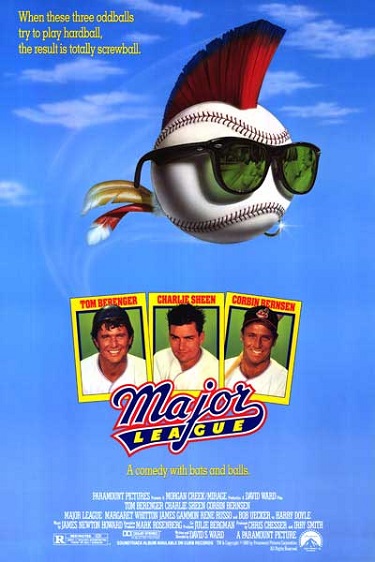Did Major League Include a Line in Their Trailer to Mislead Audiences?
Here is the latest in a series of examinations into urban legends about movies and whether they are true or false. Click here to view an archive of the Movie urban legends featured so far.
MOVIE URBAN LEGEND: Major League included a line in the original trailer designed to mislead viewers as to what happened at the end of the movie.
Sadly for Cleveland fans, the Indians lost the World Series last night to the Chicago Cubs, so 1948 remains the last time (for now) that the Indians have won the World Series. After playing well through the mid-1950s, the Indians then entered a long slump as a franchise, which was used as the basis for the hit 1989 comedy film, Major League, which is about a hapless Cleveland Indians franchise suddenly becoming good after the owner cut salary dramatically and only had walk-ons and has-beens on the team.
A while back, I discussed how the owner in the movie originally was secretly the HERO of the film! Today, based on a suggestion from reader Gage, we look at whether a famous line from the film’s trailer was inserted into the trailer (and not the actual movie) in an attempt to mislead audiences as to how the film would end!
At the end of the original trailer for the film, there is a scene where the characters played by Tom Berenger, Charlie Sheen and Wesley Snips are sitting around, having a bit of a laugh over how New York Yankee slugger Clu Heywood hit a monster home run off of Sheen. Berenger’s character suggests that the home run wouldn’t have been hit out in another park. Sheen’s character tells him to name one. He retorts, “Yellowstone.”
It’s a great scene, but it was not in the eventual film.
Gage wrote in about a legend about WHY it was the trailer to begin with:
it was included in the trailer to build suspense for the final game in the movie, as Sheen is brought in as a reliever [to face the guy who hit the home run in the trailer – BC] and viewers would second guess the assumption the Indians would win because that scene had yet to occur. Essentially including a false ending in the trailer to mask the inevitable victory of the protagonists. Is there any truth to this?
In the end, no, the scene as written was part of the original film. It was during a sequence where the Indians were struggling. It was in the script right ahead of a never-filmed sequence where Sheen and Snipes’ characters are signing autographs but no one wants them, to the point where Snipes’ character has to threaten a little kid into taking his autograph!
In Jonathan Knight’s great book, The Making of Major League: A Juuuust a Bit Inside Look at the Classic Baseball Comedy, writer David Ward spoke about the Yellowstone scene:
Funny as it may have been, the Yellowstone line, like several others, had to go for the overall good of the movie. “If comedies get slow, they lose their edge, “Ward explains, “You gotta get in and get out. Hit ’em with it and move on.”
I presume Ward is referring to the extended sequence of showing how poorly the team was doing, including the monster home run. Presumably he felt that there was too much of that, so he trimmed it for time.
Amusingly, since it was so prominently featured in the trailer, people insist it was in the actual movie. Ward joked that he would get into arguments with people over whether it was in the final film. Because of that, Ward actually DID add the line to the Major League 2 sequel. After all, as he noted, if people think they saw it anyways, might as well actually show it to them!
Anyhow, Gage, I think that the fact that it was in the film’s official script and Ward explained why they cut it (and his explanation made sense), that I am willing to go with this legend as…
STATUS: False
Thanks for the suggestion, Gage! And thanks to David Ward and Jonathan Knight for the info!
Feel free (heck, I implore you!) to write in with your suggestions for future installments! My e-mail address is bcronin@legendsrevealed.com.







How is this true? The legend is that the line was designed specifically for the trailer to mislead people, then you say in the article, no, it was written as a part of the film and just cut for time reasons…then you say it is true? I think you forgot what the legend was partway through writing this.
Just a transcription error! Thanks, fixed it!